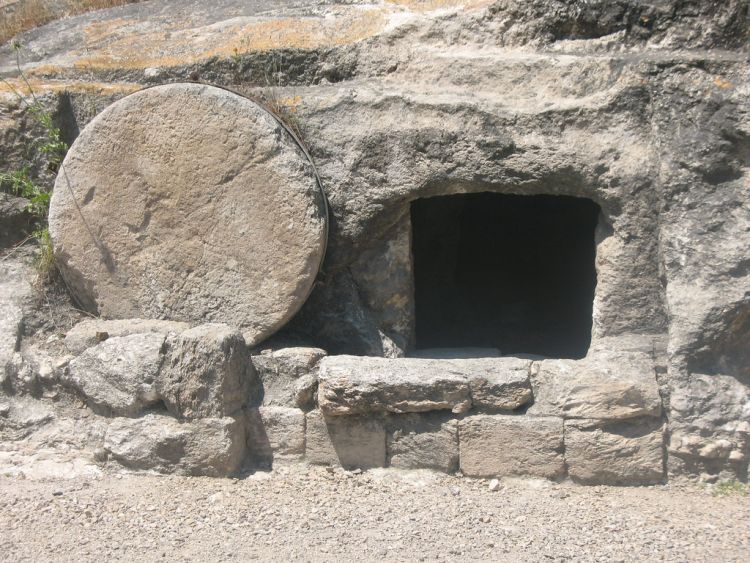
There’s a moment at the end of the Gospel of Luke that surprises me every time I read it.
Then he said to them, “These are my words that I spoke to you while I was still with you, that everything written about me in the Law of Moses and the Prophets and the Psalms must be fulfilled.” Then he opened their minds to understand the Scriptures, and said to them, “Thus it is written, that the Christ should suffer and on the third day rise from the dead, and that repentance for the forgiveness of sins should be proclaimed in his name to all nations, beginning from Jerusalem.” (Luke 24:44–47)
The resurrected Jesus speaks with his disciples and tells them that he fulfilled all that was written about him in the entire Old Testament. He says it is written that the Messiah should die and be raised, and that the gospel would be preached to the whole world.
Did you catch that? Jesus said his resurrection was predicted in the Old Testament. So…where was that again?
Peter’s Sermon
Many people rightly point to Psalm 22 or Isaiah 53 as places to turn for Old Testament teaching on resurrection. But today we’ll examine how the apostle Peter answered this question.
Peter began his Pentecost sermon by explaining that the early Christians had received the Holy Spirit. He then talks about Jesus—his arrest, death, and resurrection. In explaining that “it was not possible for [Jesus] to be held by [death],” Peter does a strange thing. He quotes David in Psalm 16:8–11.
For David says concerning him,
‘I saw the Lord always before me,
for he is at my right hand that I may not be shaken;
therefore my heart was glad, and my tongue rejoiced;
my flesh also will dwell in hope.
For you will not abandon my soul to Hades,
or let your Holy One see corruption.
You have made known to me the paths of life;
you will make me full of gladness with your presence.’ (Acts 2:25–28)
Then Peter interprets for us.
Brothers, I may say to you with confidence about the patriarch David that he both died and was buried, and his tomb is with us to this day. Being therefore a prophet, and knowing that God had sworn with an oath to him that he would set one of his descendants on his throne, he foresaw and spoke about the resurrection of the Christ, that he was not abandoned to Hades, nor did his flesh see corruption. (Acts 2:29–31)
Whoa.
Peter says that David, believing God’s long-term promise, knew that the Messiah could not be abandoned in death. He would not decay in the tomb.
As with Jesus, so with Us
Knowing that David was speaking about the Messiah in Psalm 16, what can we now learn from that text?
Because Psalm 16 is written in the first person, we should read David’s words—at least in part—as speaking prophetically not just about Christ but for Christ. After expressing confidence in the resurrection from the dead (v.10), we read this.
You make known to me the path of life;
in your presence there is fullness of joy;
at your right hand are pleasures forevermore. (Psalm 16:11)
Though we may be eager to apply these verses to ourselves, let’s slow down.
Jesus had enormous, painful, tortuous work to accomplish. He bore a weight of sin we cannot imagine, and in his death on the cross he suffered an agony of soul far beyond the bodily pain he endured. His eternal Father turned away, and the Son felt the wrath of God against sin. On the cross there was no presence of the Father, no joy, no pleasures.
But the resurrection (and ascension) turned this story around. Jesus was vindicated by his resurrection and was welcomed back into perfect communion with his Father. In place of the wrath, loneliness, and fury he felt in his crucifixion, Jesus would now have “pleasures forevermore.”
These delights await us too. We can gain nothing greater in the new heavens and earth than God himself and the full joy that comes from his presence. But that fellowship was bought for us at a great cost. The promise is first for Jesus—who died for us but over whom death could never be a victor. And then it’s for us, because we follow our elder brother in his resurrection.
This article originally appeared here.
- Links for the Weekend (2026-02-13) - February 13, 2026
- Links for the Weekend (2026-02-06) - February 6, 2026
- The Parable of the Dog and the New Master - February 4, 2026

